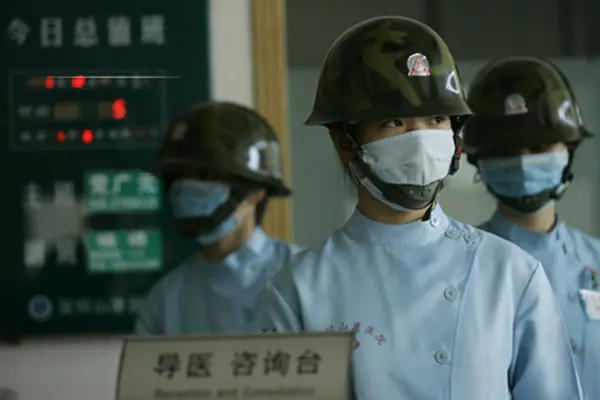Violence against medical staff continues to make headlines in China, highlighting the urgency of protecting practitioners, and more importantly, improving communication between patients and doctors.
Last week, a retired doctor in Guangdong was stabbed to death by a former patient. On Tuesday, in Chongqing, a doctor was stabbed by a friend of one of his patients. On the same day, a doctor in Jiangxi was beaten up by seven relatives of a patient.
In a statement issued on Wednesday, the National Health and Family Planning Commission said all suspects had been arrested, and reiterated the "zero tolerance" policy, saying it is the duty of society at large to foster "a healthy and stable environment for patients" and "a safe environment for medical personnel."
Acute Symptoms
Strained doctor-patient relations and hospital violence are rooted in frustration, misunderstanding and dissatisfaction.
Authorities have long been aware of the stress suffered by medical personnel. A report by the Chinese Medical Doctor Association last year claimed that nearly 60 percent of medical staff had experienced verbal abuse and over 13 percent had been assaulted.
In 2014, over 7.6 billion treatments led to 115,000 disputes. Law-enforcement agencies arrested 1,425 people in 1,349 cases and dealt with 4,599 "security incidents" in hospitals. Accordingly, security guards have been employed and hospitals are often equipped with CCTV and alarm systems.
Third-party mediation platforms have been set up to deal with disputes. In 2014, 66,000 disputes fell into these safety nets and more than 85 percent were solved amicably.
Many large hospitals now have departments specifically to manage disputes, and more doctors are covered by medical liability insurance.Practitioners are no longer allowed to accept sweeteners from medicine companies nor gifts from patients.
Incidences of hospital-related violence fell in 2015 for the fourth consecutive year, down 12.7 percent from the previous year, according to the Ministry of Public Security.
Chronic Pain
The attacks demotivate doctors and nurses. After each tragedy, many replace their social media profile pics with black ribbons in grief and protest.
"Patients are never our enemy, illness is," said Yang Zhen, a doctor with the Zhongshan Hospital in Shanghai, calling on doctors look at extreme cases rationally.
Echoing Yang's view, Chen Penghui, a doctor from Fujian Medical University First Hospital, said silent rage cannot ease the tension between patients and staff, but understanding can.
"Patients get frustrated when a consultation lasts only a few minutes after they have waited in line for hours. We hope they respect us and understand the pressure we are under," said Chen.
Medical staff are urging the media to be objective and impartial when reporting medical disputes.
"Many people are prejudiced against the medical profession through sensational stories or rumors circulating on the Internet that exaggerate the conflicts," said Chen.
(APD)
 简体中文
简体中文

